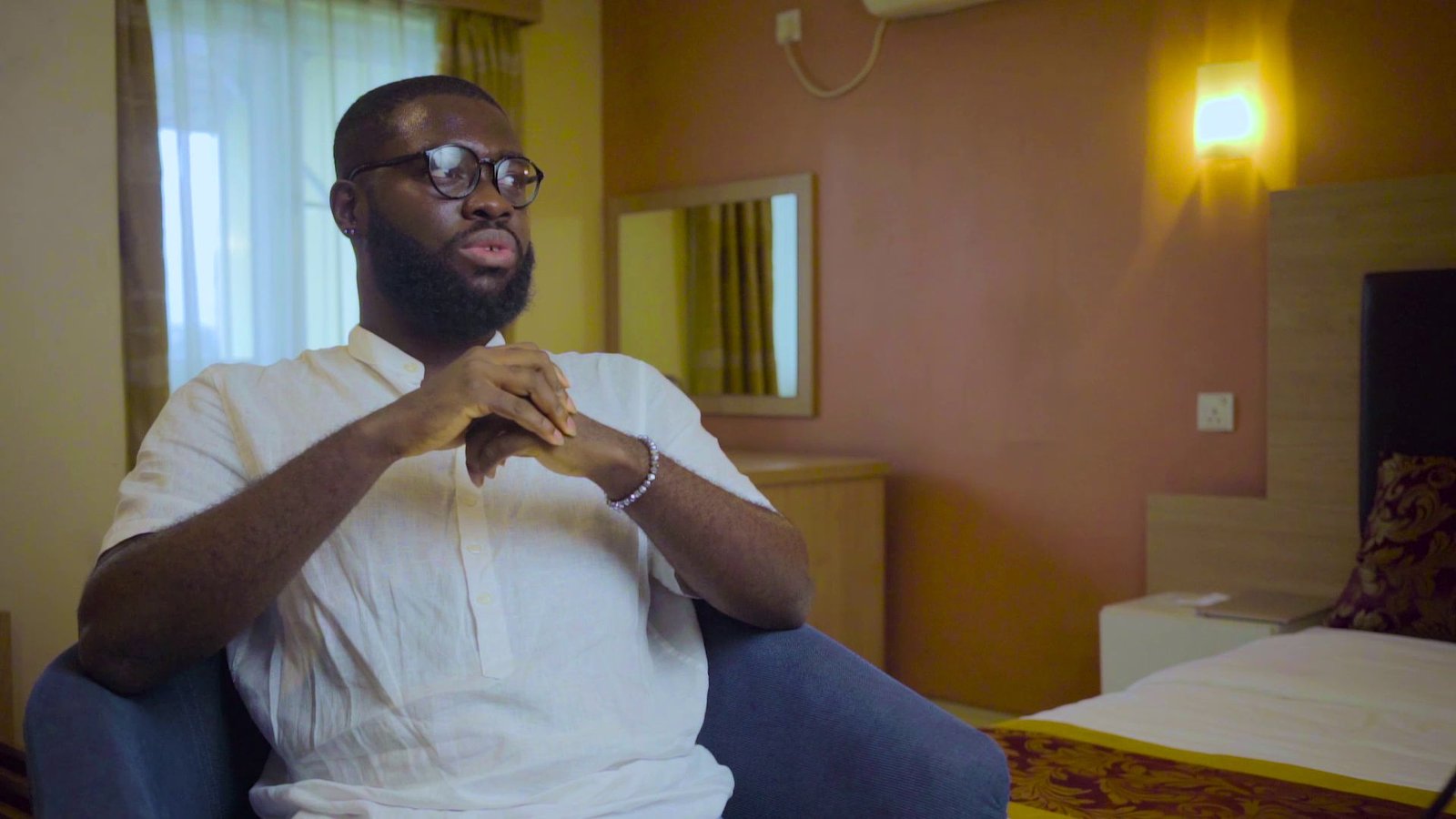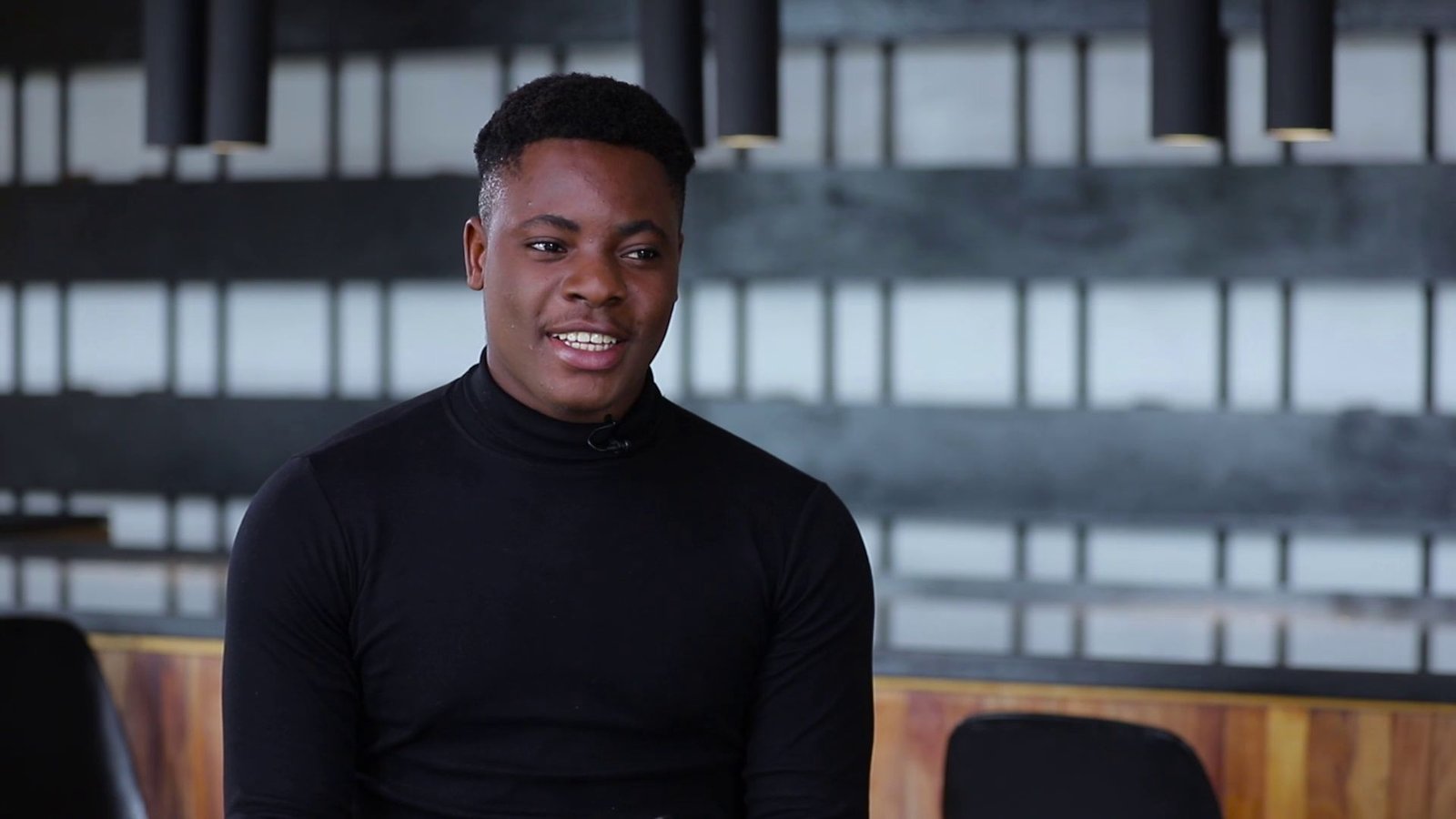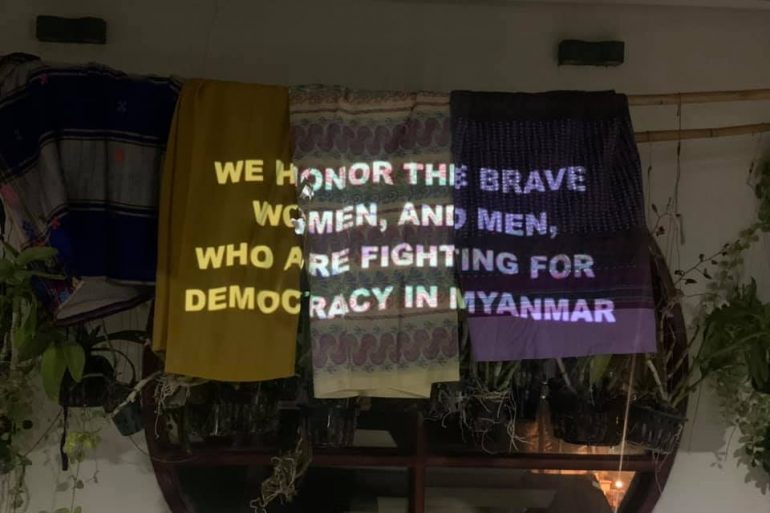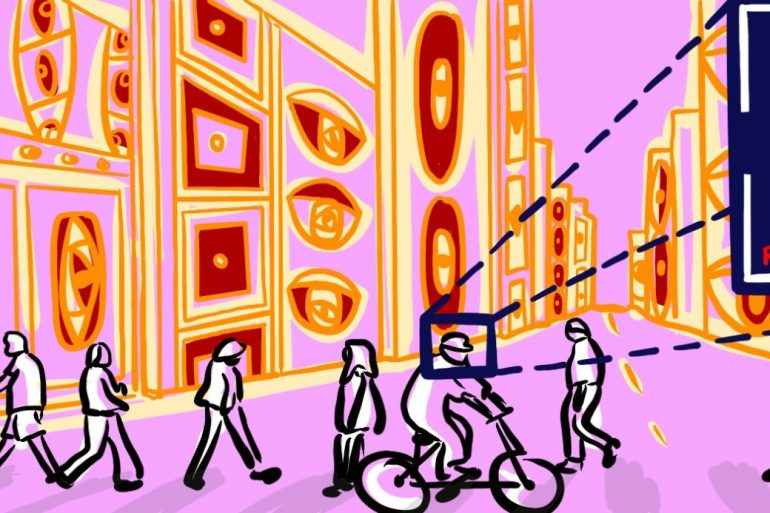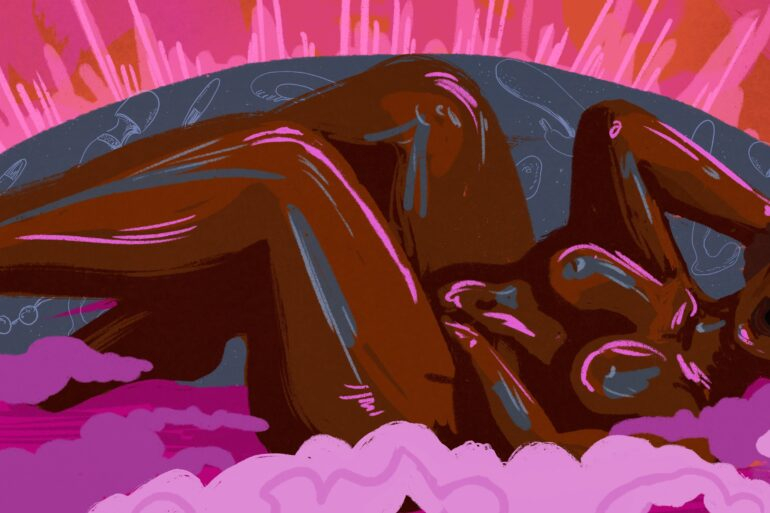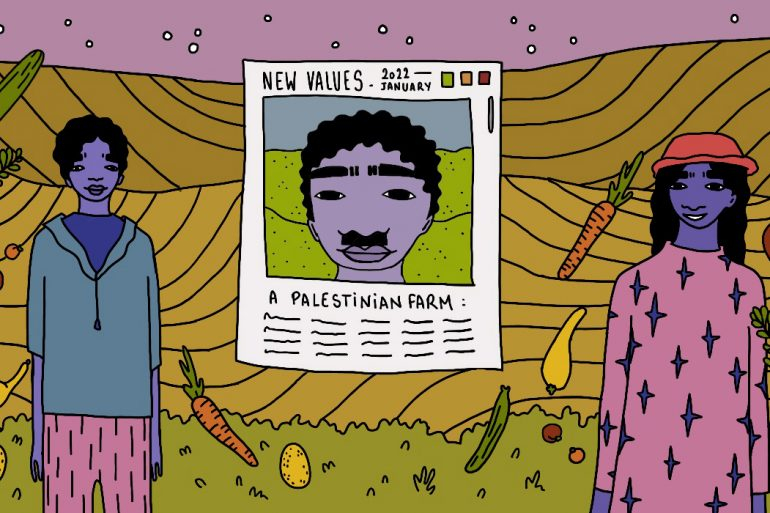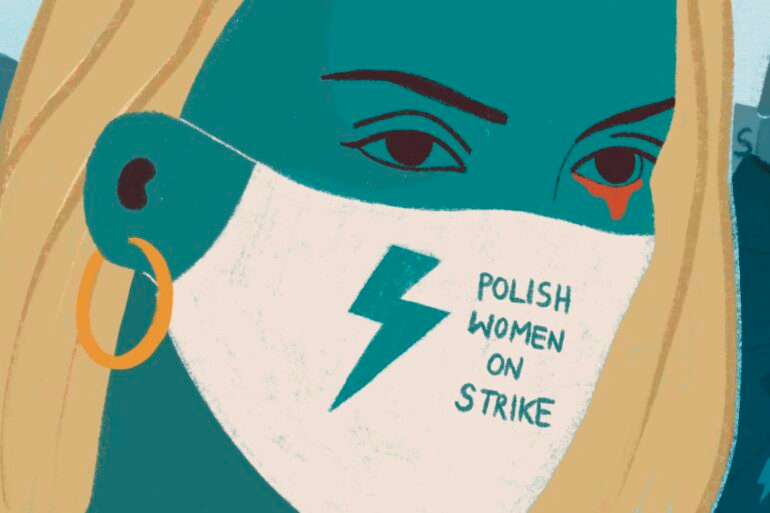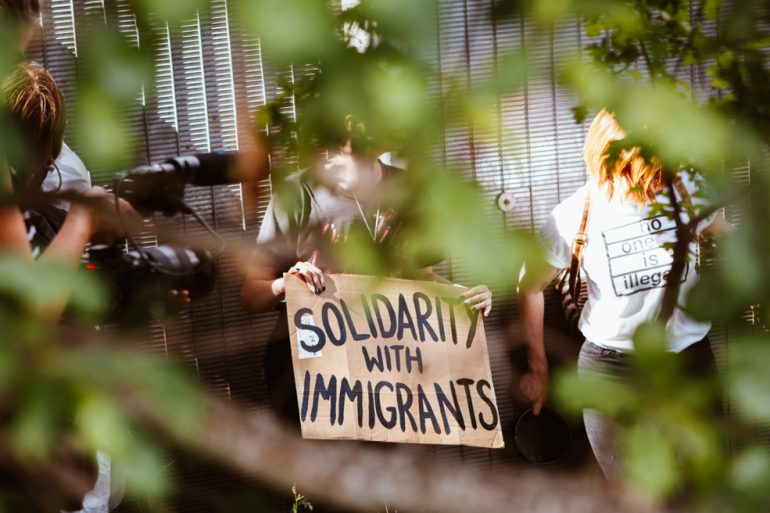The EndSARS protests in Nigeria started on October 7th, and while the rest of the world seems paralysed in wait for the Biden-Trump result, they continue to rage. In these recent weeks, Nigerian youth have never been more visible, with thousands of young people on the streets protesting for change and calling for an end to police brutality. But those who face a dual oppression are the LGBTQI+ community, whose fight for survival plays out against a backdrop of both social and state oppression. In a country that does not recognise LGBTQI+ rights, it is a huge risk to be visible and out in Nigeria. However, the need for personal stories of resistance and the lived queer experiences have never been more crucial in challenging abuse and violence towards the LGBTQI+ community. Nigerian journalist Harry Itie, recognising this power and importance of queer resistance, began to follow the lives of four openly out Nigerians: Matthew, Amara, Vincent and Mariam. Defiance, released last Sunday, 1st November, celebrates the power of representation of the queer community, by the queer community.
We caught up with Harry about his film and why it is so vital to be elevating the voices of the Nigerian LGBTQI+ community and displaying honest representation on screen. “[Being queer in Nigeria] hasn’t been the best experience, I can’t lie,” he says, “but we are finding ways to fight and resist. I think that is the most beautiful thing about this generation: the passion that they have.”

How did you come up with the title of the film? Can you talk a bit more about the context of growing up as an LGBTQI+ person in Nigeria?
Harry Itie: I’ve always been in awe of young, queer Nigerians. I feel like there’s a level of boldness and assertiveness to the way that they take up space – something that I haven’t really seen before. I’m 31, but throughout my time navigating my sexuality, I’ve never really seen young people be so bold, so loud and so proud. For me, that’s so important, and that’s why Defiance was a good name to use; I felt like this properly categorised the work they were doing. Irrespective of laws that were in place, these individuals are saying, “no – we are going to live our truth, we are going to take up space and there’s nothing you can do about it.”
Growing up queer in Nigeria has to be shielded. There’s a lot of hiding that needs to be done; there’s a lot of pretending and you can feel very alone. A lot of people find solace in building communities and trying to create alternative spaces where they can truly be themselves. It’s important to show that things are finally switching up: times are changing and people are now being expressive, living their lives based on truth.
You say of the film that “a new generation is rising”. Can you tell us more about the main characters in your documentary, and how you connected with them?
HI: A lot of the characters in the film, from the main characters (three of which are still in school) to the contributors, are under 25. These are young people – and mind you, these were just four people out of the growing community – who are very loud, proud, open and unapologetic. So, that’s why a new generation is rising. They are out here doing the work; they are out here taking up space and living their truth. For example, Matthew Blaise is walking down the streets in the SARS protests shouting “Queer lives matter” in a crop top. That video was very powerful. The film follows people who have spent time documenting and recording the history of queer people in Nigeria; we have Miriam, who does Pride Diaries; we have Amara, who is a vlogger living her truth. I love that. They are just ordinary people doing extraordinary things. That is what makes them so special.
How open were people to the idea of being featured on screen? People obviously were taking risks in coming out and being so visible on screen. How did you navigate this as director?
HI: To be honest, for me, I wanted people who were already visible and ‘out’. So it didn’t really take a lot of convincing, speaking about their experiences of being queer people in Nigeria. It wasn’t an issue because they were already there, doing the work, living the experiences. There are so many people who are speaking out, but these four are the few who are very vocal, putting their voice and face out there.
We have recently featured a piece by the brilliant Matthew Blaise, one of the people you focus on in Defiance. They wrote about their experience of police brutality specifically: how do laws, and those upholding them, affect the LGBTQI+ community in Nigeria?
HI: The laws made a bad situation worse. They have found a way to cripple and dehumanise queer people, forcing them to shrink away from being their authentic selves. A lot of queer people have had to move out of Nigeria; people who are privileged enough to do so have left, but people who can’t afford to leave are living in the shadows. The laws have really affected how queer people navigate Nigeria and all its different spaces. We’ve faced issues of blackmail and extortion; people being outed unnecessarily and then left fighting for their lives.
Defiance seems to show the importance of positive stories. There is mention of the problem of reducing queer stories to stories of violence, human rights and abuse – what do you hope your documentary adds to the conversation/representation of queer lives.
HI: In Defiance, I am not just looking at the stories of violence – because that’s already part of the queer experience. If you’re part of the LGBTQI+ community, you know someone that has endured abuse or you’ve experienced it yourself. However, I wanted to show my characters in all their fullness. I wanted people to walk through their journey, and into the community. I wanted the audience to see them as who they are: as people who want to live full lives. Defiance also lets my characters know that we see the work they are doing and we appreciate them. It’s a celebration, right? I want non-queer people to watch the documentary and learn about what it means to be queer; about how we navigate spaces safely, even when we are out. It’s very important for me that the audience understands the experience to a certain degree; that they learn from lived experience and broaden their understanding of what it means to be queer. There’s a danger of people looking at the queer community as homogenous, but I hope Defiance helps them understand us as diverse.
What changes can you see already happening due to this new generation of young people fighting for change?
HI: I think we’re living out the changes in real time. We can see how far these young people are willing to push the conversation and how far they are willing to take their activism and their advocacy. You can see an example in their passion in the End SARS protests: how they stepped out and owned their experiences, letting the world know about police brutality. I think it’s amazing. I have no doubt that they will do incredible work, because we can already see how the conversations are making it out in the open – and young people are making this happen. We cannot underestimate the power that they hold: the change is happening now, and I’m here for it.


